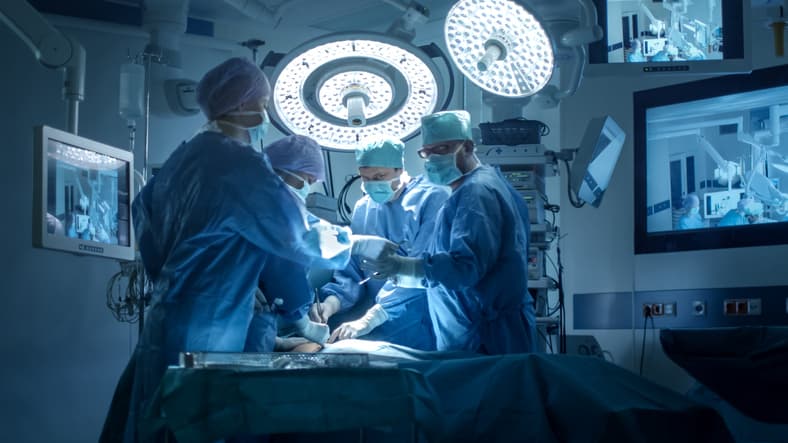
Dental Work and Dry Mouth
Saliva can interfere in some dental work, so your dentist may use a rubber dam or other materials to help keep the area of work dry. Because of that, dry mouth can be quite normal after dental surgery and other dental work. For example, before filling a cavity or performing an extraction, your dentist will prepare the area for a local anaesthetic injection by drying it with air from a tube, or they might use cotton rolls to absorb the saliva. While they work, the assistant might also hold a soft plastic tube in your mouth that sucks away excess moisture. When the treatment is over, your mouth might feel dry for a short time, but this is nothing to worry about. If it’s persistent, it may be time to consult with your dentist.
Side Effect of General Anesthesia
General anaesthesia can result in some mild side effects, including dry mouth. According to Medline Plus, after waking up from a surgical operation, you may feel shivery and nauseous, as well as notice your mouth is dry and your throat feels sore. Again, these after-effects should last only a few hours, but if they persist, you should check in with your doctor.
Long-Term Dry Mouth
Occasionally, dry mouth continues long after surgery. Cancer patients especially may develop dry mouth as a result of their radiation therapy. If you have surgery that can affect your saliva production, your healthcare team should be able to advise you on how to treat long-term dry mouth, including medication and sprays that help supplement saliva.
Living With Dry Mouth
Dry mouth after surgery can increase your risk of dental problems if persistent, but you can develop simple daily habits to keep your mouth feeling moist and help reduce the risk of tooth decay. After your procedure, brush twice a day with toothpaste to protect your teeth. You should also avoid smoking and drinking alcohol and caffeinated beverages, which will dry out your mouth.
Increase your saliva flow by sucking on hard sugarless candy and chewing sugarless gum, and take regular sips of water. Breathing through your nose and not your mouth also helps avoid drying up the saliva you produce. Tell your dentist about your dry mouth so they can recommend an artificial saliva spray and other treatments that can help.
Recovering from surgery takes time, but in most cases, the dry mouth after effect disappears within a day. If your dry mouth lasts longer, tell your dentist so you can decide together the best way to reduce your risks of tooth decay.
